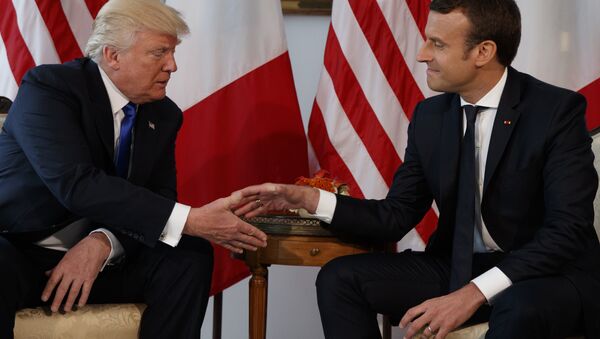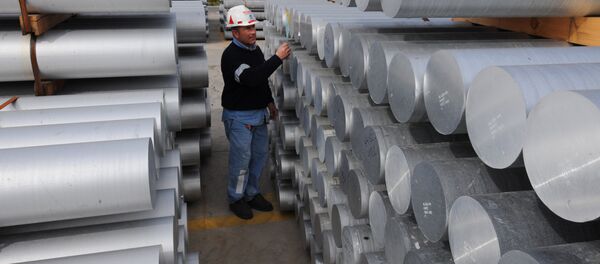Over half of French respondents to an online poll indicated that they no longer consider the United States a reliable partner, according to the French think-tank Foundation for Political Innovation, which commissioned the survey jointly with the American Jewish Committee, an advocacy organization, and Le Sursaut, a political forum.
They questioned 1,007 internet users on September 10th and 11th; the data revealed a serious drop in pro-American sentiment over a four-year period. Just 44 percent of respondents said the US remained a "trusted ally" under President Trump, compared with 77-percent approval for his predecessor Barack Obama in a similar poll dated May 2014.
The majority of those polled (roughly 54 percent) said they had a "very bad opinion" of Donald Trump, while as few as 17 percent respondents showed a positive attitude towards the US President.
READ MORE: 'France Trying to Regain Initiative On European Level' — Strategic Researcher
Supporters of the right-wing National Rally party, formerly known as the National Front, were the only group to express a more positive opinion, with 42 percent backing Trump.
Some 78 percent said the US had a negative impact on France's economic growth. In the wake of Trump's decision to scrap the Paris climate agreement, 88 percent see the current White House administration as an adversary rather than an ally in the fight against climate change.
However, there has been a slight improvement since Trump took office in November 2016, when just 38 percent viewed the US as a trusted ally.
Relations between the United States and France, two longstanding trans-Atlantic allies, have been strained in the recent months as Washington has adopted a protectionist trade agenda. This spring, Donald Trump announced tariffs on aluminum and steel imported from the European Union, citing national interests. The move sparked a backlash from European leaders, including French President Macron, who argued for the reversal of the US President's decision, which he claimed would hurt trans-Atlantic trade. However, Trump followed through on his threat, with tariffs entering into force on June 1 and prompting retaliatory measures from the bloc.
Another stumbling block in US-France relations is Donald Trump's decision to scrap the 2015 Iran nuclear deal, which curbed Tehran's nuclear ambitions in return for the loosening of crippling economic sanctions against the country. The US threatened to penalize foreign firms doing business with Iran, forcing many of them to leave the country. French companies have also fallen victim to the US sanctions game; the French oil and gas company Total has already pulled out of its giant energy project, while car makers Renault and PSA said they would scale back their activities in Iran.
In yet another blow to the United States' reputation abroad, POTUS pulled out of the 2015 Paris climate agreement, aimed at tackling climate change. It seeks to hold the increase in the average global temperature to below 2 degrees above its pre-industrial level by reducing greenhouse gas emissions, with all the signatory states agreeing to reduce or limit their greenhouse gas emissions. Last April, Trump said the deal didn't benefit America and stated that full compliance with the agreement would mean huge economic losses for his nation.





